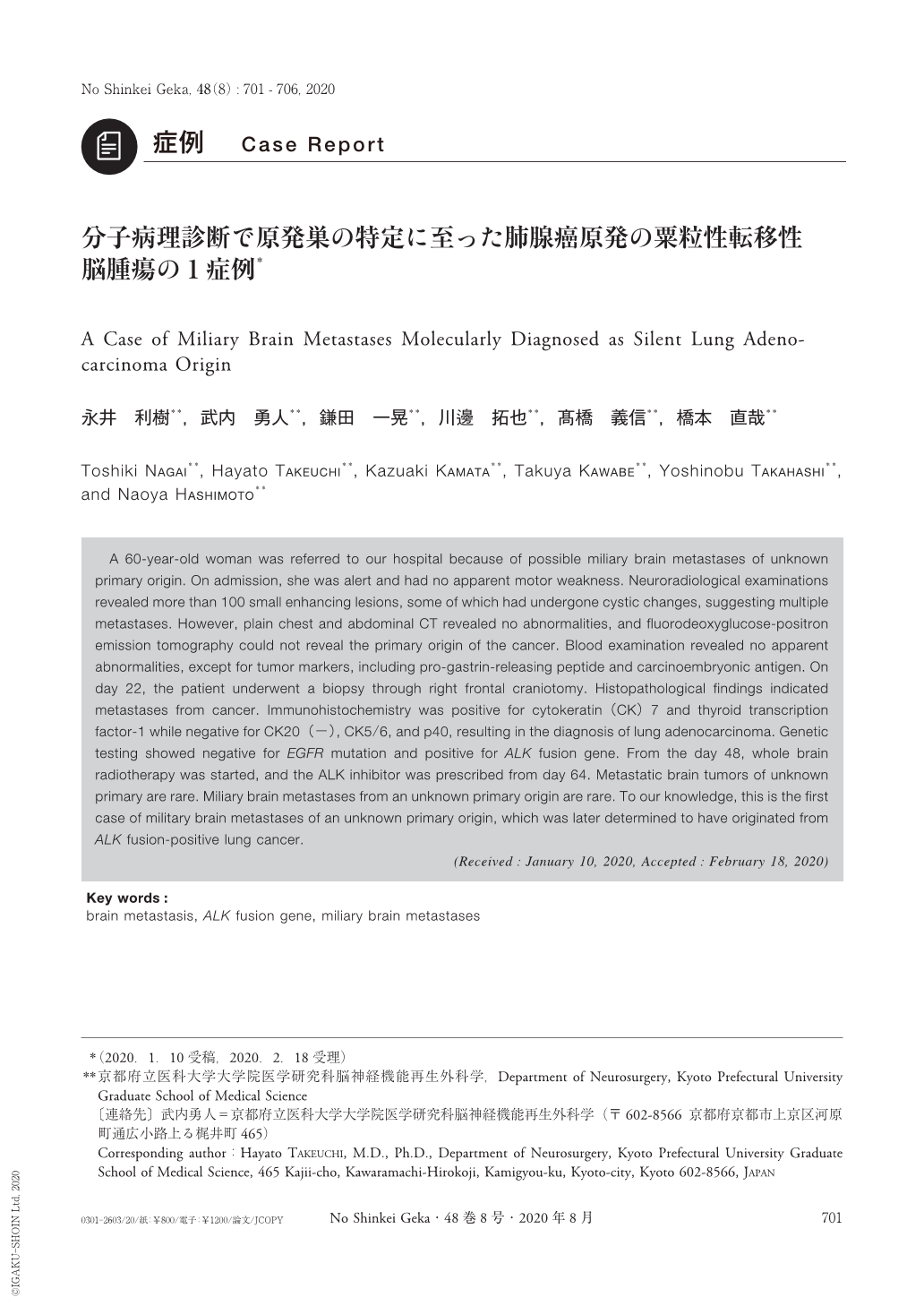Japanese
English
- 有料閲覧
- Abstract 文献概要
- 1ページ目 Look Inside
- 参考文献 Reference
Ⅰ.はじめに
脳実質内に100個を超える粟粒性脳転移(miliary metastasis)で発症し,分子病理診断によって原発巣の同定に至り,遺伝子変異に基づいた治療を施行した症例を経験したので報告する.
A 60-year-old woman was referred to our hospital because of possible miliary brain metastases of unknown primary origin. On admission, she was alert and had no apparent motor weakness. Neuroradiological examinations revealed more than 100 small enhancing lesions, some of which had undergone cystic changes, suggesting multiple metastases. However, plain chest and abdominal CT revealed no abnormalities, and fluorodeoxyglucose-positron emission tomography could not reveal the primary origin of the cancer. Blood examination revealed no apparent abnormalities, except for tumor markers, including pro-gastrin-releasing peptide and carcinoembryonic antigen. On day 22, the patient underwent a biopsy through right frontal craniotomy. Histopathological findings indicated metastases from cancer. Immunohistochemistry was positive for cytokeratin(CK)7 and thyroid transcription factor-1 while negative for CK20(−), CK5/6, and p40, resulting in the diagnosis of lung adenocarcinoma. Genetic testing showed negative for EGFR mutation and positive for ALK fusion gene. From the day 48, whole brain radiotherapy was started, and the ALK inhibitor was prescribed from day 64. Metastatic brain tumors of unknown primary are rare. Miliary brain metastases from an unknown primary origin are rare. To our knowledge, this is the first case of military brain metastases of an unknown primary origin, which was later determined to have originated from ALK fusion-positive lung cancer.

Copyright © 2020, Igaku-Shoin Ltd. All rights reserved.


